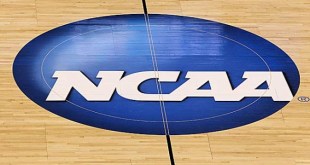Following the Pepper Hamilton Report into Title IX issues at Baylor University, the narrative has continued in a downward spiral for Baylor, which was sued on Friday, in a lawsuit alleging 52 rapes in a four-year period. The suit alleges that due to the school’s laissez-faire policy on punishing football student-athletes for sexual assaults, at least 31 Baylor football players were involved in acts of rape from 2011 to 2015, and goes further to address recruiting improprieties involving the school’s hostess program. While I am not going to begin to address the depravity of the crimes and cover-ups alleged in the complaint, this lawsuit does provide the final nail in the coffin for what could be an NCAA “Death Penalty” case against the Baylor football program.
In 2015, Baylor hired Pepper Hamilton to conduct a comprehensive review of its Title IX Program and Compliance, following several allegations involving the football team and unreported or uninvestigated claims of sexual assault.[i] The Report found a pervasive culture of staff members at Baylor University impeding, covering up, or ignoring reported instances of sexual assault. These allegations open up the university to significant civil liability, in addition to potential Title IX and Clery Act violations that could affect the school’s (more to the point, the school’s students) ability to receive federal financial aid. The lawsuit filed on Friday contains allegations that both expand and provide specifics on what was already mentioned in the Pepper Hamilton Report. If the allegations are true, and these two accounts do at least somewhat corroborate each other, then Baylor football could be in serious trouble with the NCAA in the likely event of an investigation.
No Sex as a Recruiting Tool
To start with the lesser of two evils, Baylor allegedly engaged in significant recruiting violations by providing sex to prospective student-athletes via the “Baylor Bruins” all-female student host group. Oklahoma State had a public infractions decision issued against them that involved an all-female student host group that may not have even involved sexual activities (although Sports Illustrated’s in-depth report may beg to differ), and they lost the ability to have hosts for four years. Currently, Louisville is going through an investigation involving hiring escorts and strippers to provide dances and sexual activities with prospects. Regardless of who is found responsible (the primary scapegoat culprit at this point is former employee Andre McGee), this investigation will almost certainly result in Level I violations.
Using a female student host group (or escorts or dancers, etc.) to have sex with prospects is clearly intended to provide a substantial or extensive recruiting advantage, fitting well within Baylor’s reported “win at all costs” attitude lately. Getting stellar recruits by “showing them a good time” should typically consist of a campus tour, or a good meal, or bowling or something, not providing girls for sex. Not even getting to the sexual assault and attempted concealment issues yet, and Baylor is already looking at Level I violations arising from the Baylor Bruins host program.[ii]
Extra Benefits Abound
As I already addressed in May, the Pepper Hamilton report opened Baylor up to a bevy of issues concerning institutional staff members hiding, impeding, or straight up stopping sexual assault investigations. I’ve said it once, I’ll say it again: the NCAA does not police crimes. There is no bylaw against sexual assault, or murder, or theft. There are typically other rules (namely federal and state laws) concerning crimes, that in most cases should handle this sort of thing. What (ideally) happens at most schools when a student-athlete is charged (and convicted) with a crime, is they’re suspended or kicked off the team, and there are no NCAA violations because all of the school’s policies governing crimes are followed. School policies and/or legal sentencing cover any punishments, and the athletic punishment is hopefully secondary and minimally important in the grand scheme of things.[iii]
At Baylor, reporting policies, chains of command, and investigation procedures have allegedly been ignored for the purpose of protecting football student-athletes. An Extra Benefit is “any special arrangement by an institutional employee or representative of the institution’s athletics interests to provide a student-athlete or the student-athlete family member or friend a benefit not expressly authorized by NCAA legislation.”[iv] This is a generic catchall provision that covers a rather large amount of the violations that occur. Academic misconduct, giving a student-athlete $20, free or reduced cost services, and impermissible meal by a booster, or giving a student-athlete a car can all be extra benefits.
So can ignoring the proper procedures to protect student-athletes from the ramifications of a legitimate criminal or institutional investigation. According to the complaint, a member of the Baylor Bruins, immediately after the alleged rape, arrived at the room and told the victim to falsify her report to protect the player. Baylor allegedly even gave a full scholarship in hush money to a rape victim, which likely required several parties on campus to accomplish! While the NCAA will not hold a school accountable for a student-athlete committing a crime, they will absolutely hold a school accountable for its employees taking actions that prevent the natural run of punishment from reaching the athletes. Once again, read the article from May if you want more details on how crimes lead to the NCAA violation of extra benefits.
Enter the Death Penalty
Rabble rousers on the internet, in sports media, and more all wanted the infamous “death penalty” to Penn State when the child sex abuse scandal arose, but there were several issues there. Whether you look at the fact that the NCAA liberally interpreted its bylaws under pressure, or how there really were no real NCAA violations because football was incidental to the actual crime, or the fact that the death penalty is also known as “repeat-violator legislation” and Penn State didn’t meet that, the death penalty was just not appropriate in that case. The death penalty exists for schools that have a major (now labeled Level I/Level II) violation, then have another within five years. The death penalty has only been imposed five times in the history of the NCAA across all three divisions, and is the NCAA’s most significant penalty. It can result in the loss of competition for that sport for at least a year, full elimination of the sport’s athletic scholarships, and a ban on the coaches engaging in any coaching activities for the institution.
Penn State did not have any other major violations in the five years preceding their issue. Baylor on the other hand, has two in the last five years (2012 involving unethical conduct and several recruiting violations in basketball, and 2016 involving a repeated violation of off-campus recruiting legislation after two football assistant coaches thought they found a loophole). Baylor has had five major violations since 1995![v] While technically they could have been eligible for the death penalty after this 2016 violation, keep in mind that with two different sports involved, and remembering that the death penalty is the NCAA’s absolute last resort, it likely was not even considered. The first and only requirement to qualify for the potential death penalty (repeat-violator) punishment has been met. Let’s go ahead and visit NCAA Bylaw 19.9.3 (aggravating factors) to have a look at what the NCAA could take into account when considering whether Baylor would deserve a higher or lower range of penalties in a possible (likely) investigation.
Looking at the fourteen factors presented, there is a strong argument that every single aggravating factor can be attributed to Baylor’s actions in the last few years.
For the full details of the new lawsuit, you can read the complaint, or the Dallas Morning News story. Suffice to say that Baylor’s actions, by way of their staff members and student-athletes, are reprehensible at every level of scrutiny. Between the Pepper Hamilton report, this suit, and everything else coming out of Waco in the past two years, details are pouring out and things are becoming grimmer for Baylor University. Even ignoring the federal actions that may arise as a result of Clery Act and Title IX violations, any NCAA investigation that comes into play may have all the information it needs to bury the football program.
In the last decade, the three biggest and most public NCAA scandals have been at Penn State, UNC, and Baylor. Penn State became an NCAA issue through some legal sleight of hand interpreting the bylaws. UNC, despite the widely publicized number of students involved taking fake classes (around 3100 over 25 years), even the full brunt of NCAA action would only lead to the normal vacation of wins, postseason ineligibility, public censure, and the remaining standard penalties. The actions taken by Baylor University and its staff, including the blatant disregard of anything law or bylaw-related by the athletes involved in these allegations, should lead to the first case the NCAA will face in a decade that properly warrants the punishment of death penalty. Due to the prevalent violations involved in covering up numerous sexual assaults by football players in an effort to keep them on the team, the NCAA should shut down Baylor football for the time being, until they can realign their priorities to include basic human decency.
[i] Cari Grieb authored an excellent review of the issues at the time, which can be found here.
[ii] As a quick reminder, the NCAA went away from major/minor violations and went to the four tier penalty structure. Level IV are only technical/administrative in nature; level III are your standard day-to-day violations that you hear about when you see X school has reported 19 violations this year. Level I/II violations are more serious in nature that get referred to the Committee on Infractions, and are typically deliberate or repeated violations that lead to a significant recruiting or competitive advantage.
[iii] Kicked off the team shouldn’t mean much in the face of a ten-year jail sentence.
[iv] NCAA Bylaw 16.02.3.
[v] By a Fox Sports article’s count, Baylor is tied for 5th among all NCAA schools with 7 major infractions cases (the 2015 article lists them at 6, an additional occurred in 2016).
 The Sports Esquires Putting Sports on Trial
The Sports Esquires Putting Sports on Trial



52 rapes over 4 years? FIFTY-TWO? *scratches head* That’s over a rape per month and over twice the number of starters on the team, WTF was going on in Waco?
While I agree Baylor deserves the death penalty by the letter of the law, I’m not sure it’ll happen as the Big 12 (already hurting for membership and TV revenue) would pretty much collapse without them. But at the very least they should get hit with the crippling sanctions USC got, and perhaps more.